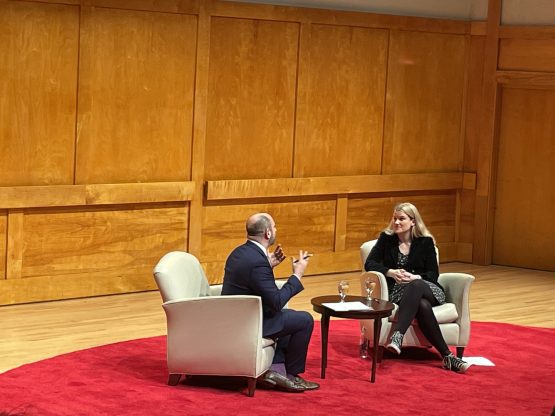
Facebook has 2.93 billion monthly active users, and 300 million new photos are uploaded daily. Twitter has 400 million monthly active users with six thousand tweets being sent every second. Instagram isn’t far behind; with 2 billion active users, it ranks fourth among the biggest social media networks in the world.
In addition to sharing images and posting hashtags, these platforms have been used to promote instability, spread misinformation and exacerbate political conflict. According to a 2020 media manipulation survey from the Oxford Internet Institute, organized social media misinformation campaigns have operated in at least 81 countries. This number continues to grow every year.
From issues with Mexican drug cartels to problems with the presidential election, social media corporations are fully aware of the dangers their platforms pose and how they can possibly mitigate the negative effects of their products. They simply choose not to act.
Frances Haugen, an algorithmic expert and Facebook whistleblower, discussed these issues during the first Stony Brook Presidential Lecture of 2023 on Wednesday, Jan. 25, at 4 p.m. in the Staller Center for the Arts Recital Hall. Carl Lejuez, the Executive Vice President and Provost, hosted the discussion in lieu of university President Maurie McInnis.
Lejuez started the event by introducing Haugen to an audience of 100 people. He discussed how, in 2019, she joined Facebook as the lead product manager on the civic misinformation team. During her time as an employee, she became increasingly alarmed as she observed the company prioritizing profits over public safety concerns.
Haugen then anonymously shared 20,000 pages of documents about Facebook’s activities with the Wall Street Journal, later providing them to the Securities and Exchange Commission. She filed a series of complaints with the U.S. federal government and has testified in front of the U.S. Congress, UK and EU parliaments, the French Senate and the National Assembly.
As a result of her actions, in October 2022, the EU passed the Digital Services Act, which is the first basic transparency law that stipulates that companies will need to consider content removal and take a proactive and transparent approach to moderation.
This includes updating the government every six months about the possible harms of their product and creating a centralized system by which the public can ask questions about these platforms and how they operate.
“All these things are meant to target what I think is the main problem of social media: we don’t know what’s going on,” Haugen said in her opening speech.
Haugen compared modern-day Facebook with the automotive industry in 1965.
“In 1965, a young lawyer named Ralph Nader published Unsafe at Any Speed, which showed how automakers had valued style over safety, putting consumers at risk even when they knew what the problems with safety were, knew how to make cars safer, and even knew that collapsible steering wheels and seat-belts wouldn’t cost them more to produce,” Haugen said.
Nader’s book prompted the passage of seat belt laws in 49 states and a number of other road safety initiatives. It also created a precedent that ensured that the automotive industry addresses safety concerns.
According to Haugen, the same thing is happening today, just on a digital platform. Platforms like Facebook have data that clearly shows the issues with their products, how they negatively impact politics, drug use and mental health and exacerbate a variety of other social and economical issues. They even know how to address these problems with their products, but they fail to act. And because they are not required to be transparent about their shortcomings, they are not being held accountable.
In particular, Haugen focused on the impacts of social media on the teenage brain and the disregard that these companies have shown to the adolescent population.
Haugen described the appeal of Facebook and other social media platforms owned by Meta, including Instagram. “They know that their platforms are very engaging. They’re designed to be engaging,” she said. “Unfortunately, in the case of children, this can lead to very high rates of problematic use.”
She specifically explained that the algorithms employed by these platforms are not neutral. Content that elicits a reaction, even a slight pause when people are mindlessly scrolling, gets distributed widely and skews towards the extreme.
For example, an innocent search for healthy recipes or meal plans on Instagram might lead a teenager to eating disorder content instead. And, according to Haugen, Facebook actually knows that its systems lead teenagers to anorexia-related content.
But, in efforts to maximize profits, they choose not to alter their algorithms or take any steps to prevent this.
“These companies are also scared that consumers won’t build relationships with their products,” Haugen said. According to her, they intentionally target teenagers and children under 13, hoping to catch them early so that they continue to use these platforms through their adult life.
“And there is nothing parents can do, because they don’t know about these issues. No one knows, because there is no way to know unless you work for these companies,” Haugen added.
At the end of her speech, Lejuez started a discussion with the whistleblower.
“It’s really exciting for me to think about how you stepped into things, and brought in information to combat misinformation,” Lejeuz said. “It takes a lot of courage to do something like that.”
He then asked how Haugen proposes people combat the issues with these platforms, and specifically how parents can help protect their children.
“I think it’s one of the things where we have to start having conversations about how we facilitate kids holding each other accountable for their actions on social media,” Haugen said. In particular, she emphasized the notion that society needs to encourage kids to care for each other, especially on digital platforms.
“I really enjoyed listening to her talk, and learning more about these platforms I use so often,” freshman communications major Caitlyn Mark, who attended the lecture, said. “She definitely changed my view, and just by telling me about these things, made me more motivated to be careful about how I use social media, as well as to tell my friends about these issues.”
In particular, Haugen emphasized the role of whistleblowers like herself in protecting the public, describing them as sentinels of public interest.
“They are the people who let us know there is a problem, and we are becoming more and more dependent on people like that,” she said. “For students, one of the most important things we can do is make sure that they know what their rights are, because it’s gonna be really hard for the next generation.”











